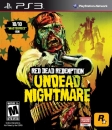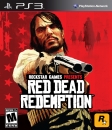RolStoppable said:
No, the PS1 is not blue ocean. Sony declared war on Nintendo and Sega, priced their system aggressively (i.e. sold it at a loss) and courted third parties with moneyhats. The about $3 billion in profits they made are the result of succeeding with a red ocean strategy. Sony went after gamers who played Nintendo and Sega systems before. The NES had to be blue ocean, because the video games market in America was basically dead and in its infancy in Japan and Europe. Nintendo didn't go out to beat Atari, they had to establish a market in the first place. The Genesis went after the NES, so it was red ocean. The SNES went after the Genesis to get the customers that Sega "stole" back with more impressive graphics and sound, so it was red ocean too. Almost all video game systems in existence were red ocean products, except for a select few. |
Okay, I understand. After re-reading the definition, the most important key word is "Create" uncontested market space.
Having said that, the NES is blue ocean by circumstance ("because the video games market in America was basically dead and in its infancy in Japan and Europe"), not by strategy.
It begs the question, why would a company go blue-ocean rather than defend what was its blue ocean and is now it's red ocean? And can't it do both?
So, ultimately (apart from refining our definitions which is a great thing), you're postulating that the N64 was a bad move because it didn't create uncontested marketspace? But why should they if they had a tried, tested and true formula with the NES. Rather, what you would be advocating for is for Nintendo to go head-on red ocean and imitate the NES formula. Or are you saying you wanted them to constantly differentiate so as to be constantly blue-ocean?
Yet, wasn't that their strategy (despite them failing at it due to circumstance)? To have superior graphics, lesser loading times, in-game cinematics, innovative games, in order to create a marketspace?
What about the cube, with the "Nintendo Difference", the innovative controller layout, the in-house games of superior quality? Again, this may be a case of what defines the strategy, the ends or the means? And what caused the failure ultimately, the strategy, or the circumstances?
Hopefully we're coming full circle.































































